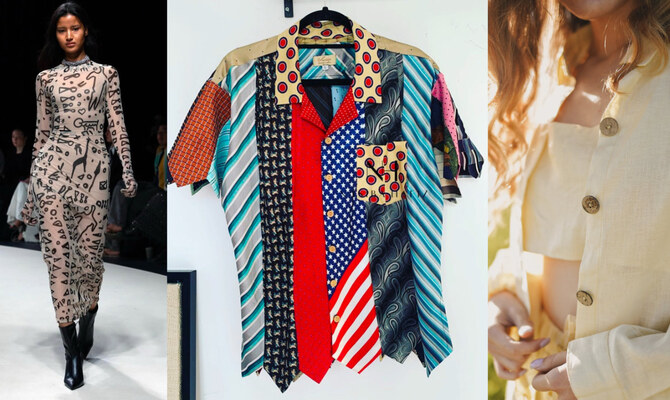RIYADH: Thanks to the mass production and export of cheaply made clothing — a phenomenon of globalization known as “fast fashion” — consumers the world over have gained access to an almost limitless range of affordable outfits.
While this manufacturing and retail boom has stimulated growth, created jobs, and catered to consumer demand, it has also placed an immense strain on the workforces making these garments and on the environment.
In line with the sustainability goals of Saudi Arabia’s Vision 2030 reform agenda and its circular economy approach, the Kingdom is encouraging consumers and manufacturers to reduce, reuse, recycle, and upcycle clothing to help ease the environmental burden.
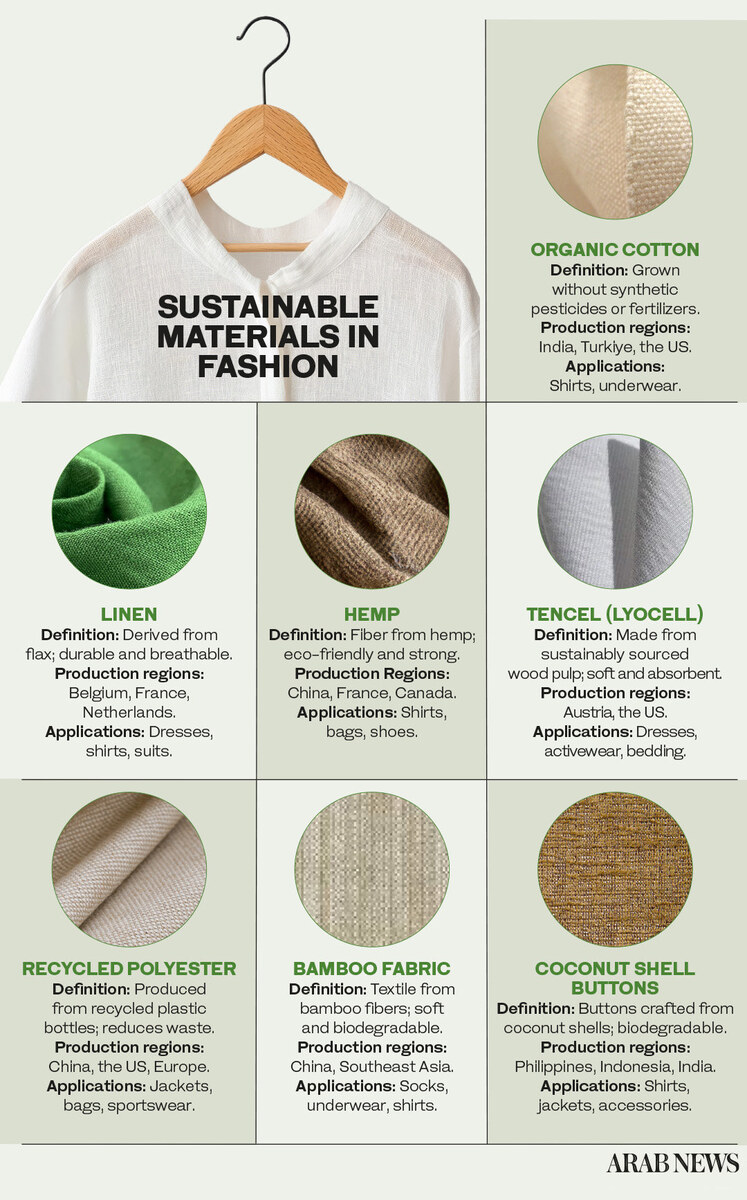
With more than 80 billion garments produced worldwide every year, the industry has contributed to the pollution of the environment, the excessive use of resources, and a throwaway culture that has resulted in towering heaps of waste.
Globally, one garbage truck’s worth of textiles is sent to landfill or incinerated every second, depleting natural resources and increasing greenhouse gas emissions. Experts warn the industry could account for a quarter of the world’s carbon emissions by 2050.
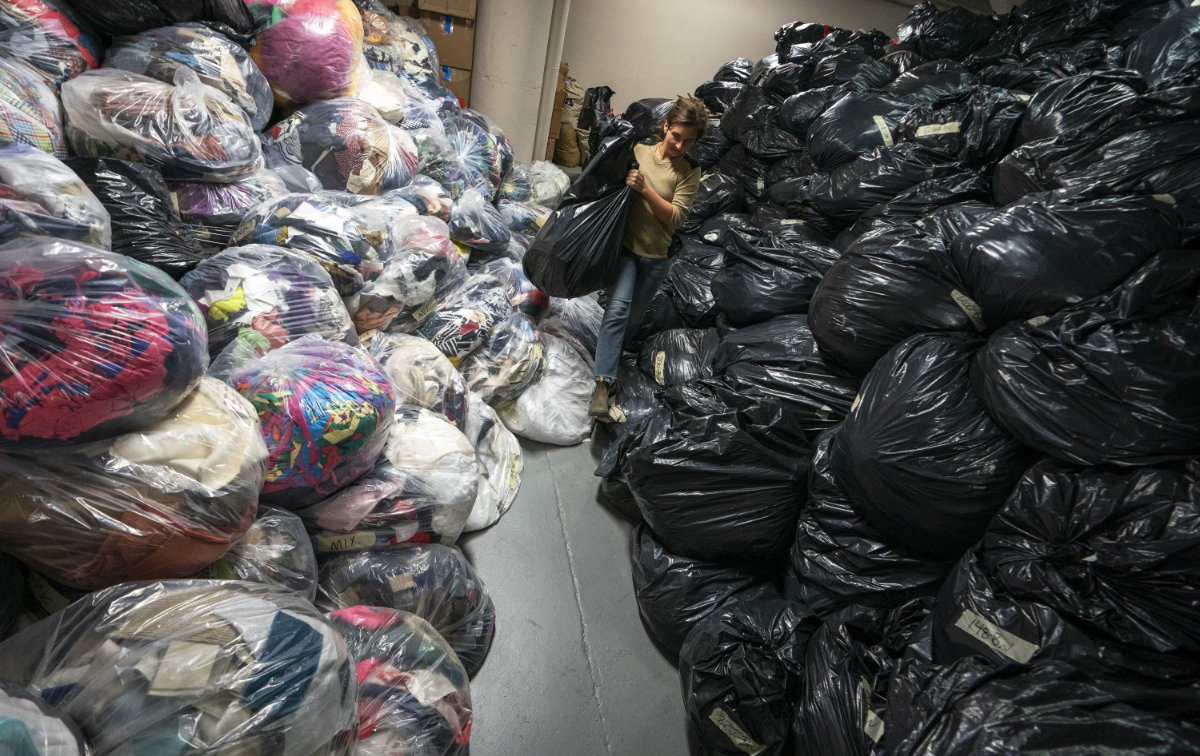
Textile waste account for 10 percent of greenhouse gas emissions, according to UN figures. (AFP)
One of the most polluting industries globally, fast fashion is responsible for 10 percent of greenhouse gas emissions, according to UN figures — surpassing the combined emissions from international flights and maritime shipping.
Compounding the problem, a report by the Ellen MacArthur Foundation reveals that less than 1 percent of used clothing is recycled into new garments, perpetuating a destructive cycle of resource depletion and waste.
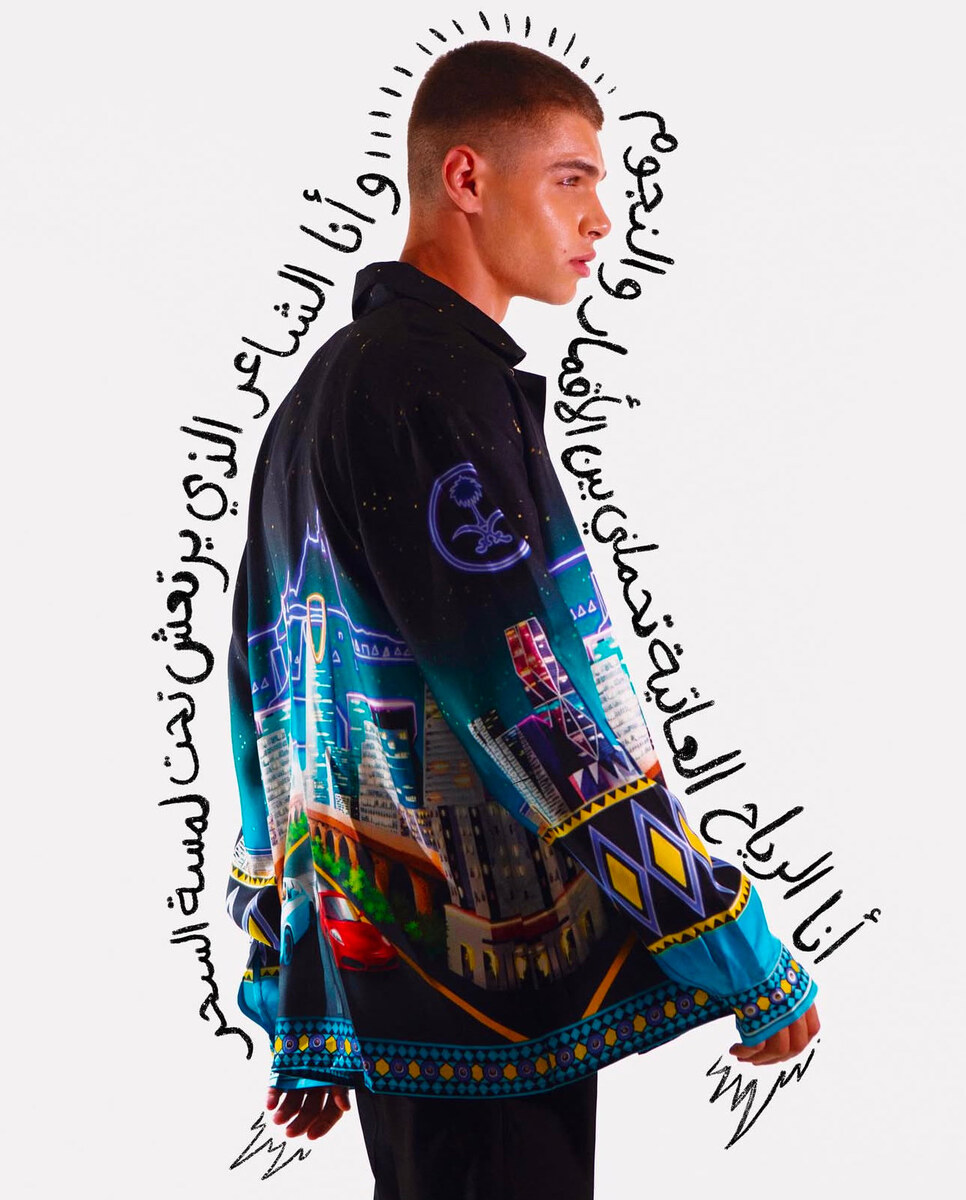
A striking design by Khoja, highlighting modern Saudi fashion with a blend of tradition and futurism. (Instagram: moekhoja)
“Sustainability in fashion isn’t just a trend; it’s a necessity,” Mohammed Khoja, founder of Saudi clothing brand Hindamme, told Arab News.
“We focus on creating high-quality, timeless pieces designed to transcend trends. This avoids overproduction and ensures that our garments can become cherished vintage finds for future generations.”
Khoja’s emphasis on “timeless design” aligns with the Kingdom’s Vision 2030 goals of reducing waste and promoting sustainable consumption.
To address the issue of waste, Saudi Arabia is investing in circular fashion — a model focused on reusing, recycling, and upcycling clothing to extend its life cycle.
The Fashion Commission, which is part of the Saudi Ministry of Culture, has launched initiatives like the GFX Fashion Swap in Riyadh, which encourages the exchange of high-quality garments while educating participants on the environmental benefits of prolonging wardrobe use.
“We don’t need to keep buying new items,” said Nasiba Hafiz, a Saudi fashion designer. “Why not use the things we already have and repurpose them? This way, we can reduce waste and become more conscious consumers.”

(Instagram: globalfashionexchange)
Hafiz collaborates with Al-Oula Women’s Charitable Society to transform surplus fabrics into new garments, reducing waste while empowering women from underprivileged backgrounds in south Jeddah.
Another significant initiative is the Sustainable Materials Research Center. Established in partnership with King Abdullah University of Science and Technology, the facility develops eco-friendly textiles for traditional garments like abayas and thobes.
By blending innovation with cultural heritage, the Kingdom advances sustainable design solutions.
Fast fashion’s impact extends beyond consumer waste, with a significant yet often overlooked toll on water resources. Factories in developing countries, where most clothing is produced, consume vast amounts of water and energy.
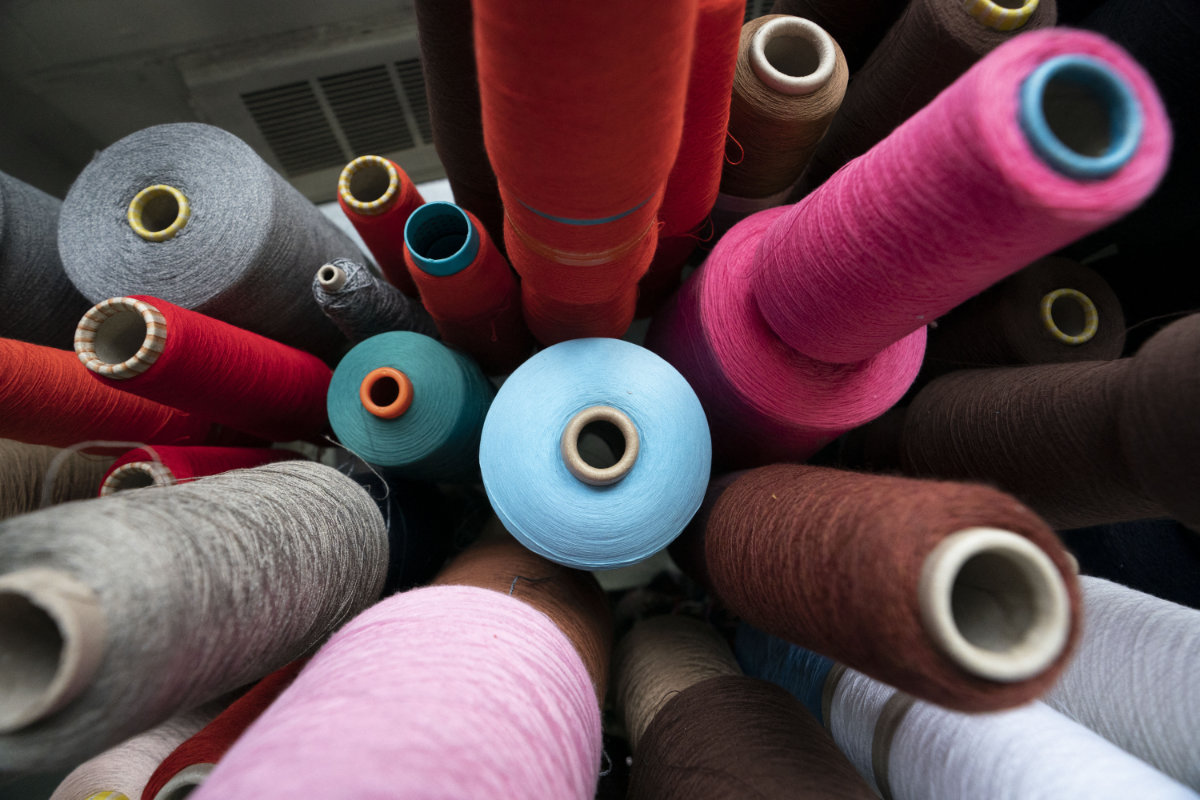
Efforts are being made to develop sustainable textile materials in the Kingdom. (AFP)
For instance, producing a single pair of jeans requires about 3,781 liters of water, according to the UN Environment Programme — enough to meet one person’s hydration needs for more than five years.
Textile factories also release hazardous waste that pollutes rivers and groundwater, with dyeing and treatment processes contributing heavily to water contamination.
The World Bank estimates the fashion industry generates 20 percent of global wastewater, which is often laced with toxic chemicals.
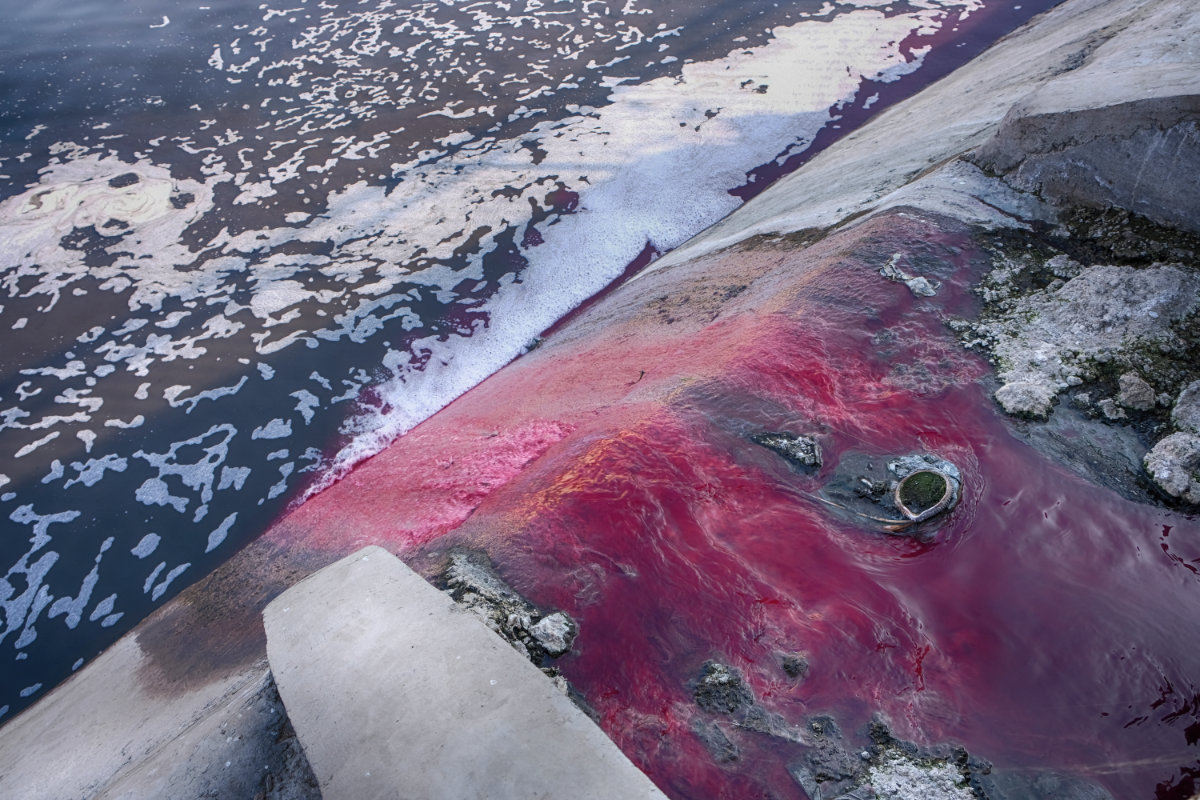
Waste from textile's factories is released to Dravyavati river in Rajasthan, India. Dyeing and treatment processes in textile factories contribute heavily to water contamination. (AFP)
In Saudi Arabia, where water is scarce, designers like Chaldene are championing sustainability. The brand incorporates eco-friendly materials, such as coconut-shell buttons, to reduce reliance on resource-heavy alternatives.
“Every detail in our collection reflects our commitment to minimizing waste and honoring nature,” Asma Al-Othaimeen and Ghada Al-Majed, the co-founders of Chaldene, told Arab News in a joint statement.
Indeed, Saudi designers are leading the Kingdom’s sustainable fashion movement, pioneering innovative approaches to reduce the industry’s environmental impact.
One such designer, Ghaydaa Majdaly, uses 3D technology to transform recycled plastic bottles into fabric, ensuring a zero-waste approach.
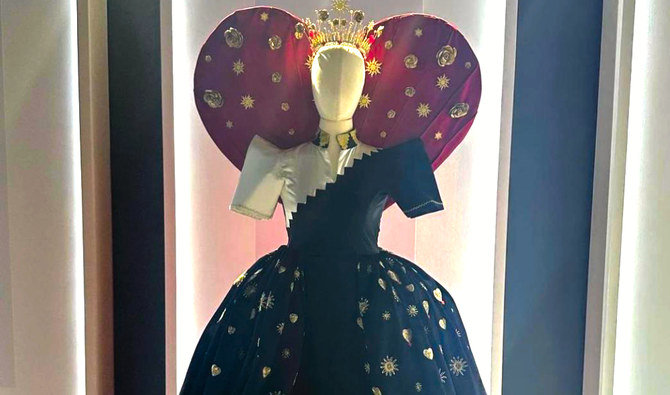
With 3D software programs simplifying the design process and improving product quality while reducing the environmental footprint, fashion designers are changing the way they approach their products, as well as pattern making and fittings. (Supplied)
“Technology allows us to reimagine what’s possible in fashion while addressing the environmental challenges of fast fashion,” said Majdaly.
To the same end, Nasiba Hafiz, in collaboration with Al-Oula, repurposes discarded fabrics into new garments. This partnership not only reduces waste but also provides economic support to women in south Jeddah.
“By reusing and repurposing, we can extend the life of materials and create something beautiful and meaningful,” said Hafiz.
DID YOUKNOW?
Sustainable fashion reduces waste and supports Vision 2030’s circular economy goals.
Brands like Yasmina Q and Al-Oula turn discarded materials into new garments.
Hajj ihrams are recycled into reusable garments through sterilization and repair.
Meanwhile, Hindamme creator Khoja, who focuses on timeless designs over seasonal trends, believes in creating heirloom-quality pieces meant to last generations.
“Sustainability isn’t just about the environment — it’s about preserving our cultural identity while reducing waste,” he said.
However, the shift to sustainable fashion is not just up to brands and designers. Consumers also play a key role in driving demand for eco-conscious products.

Fast fashion thrives on overconsumption, with surveys showing many garments are worn only seven times before being discarded.
Reyouf Madkhali, a Saudi model and sustainable fashion advocate, emphasized the role of consumer behavior. “Sustainable fashion is reshaping the industry by encouraging innovation and responsibility,” she said.
“As a model, I prioritize working with brands that align with these values to promote conscious consumerism to my audience.”
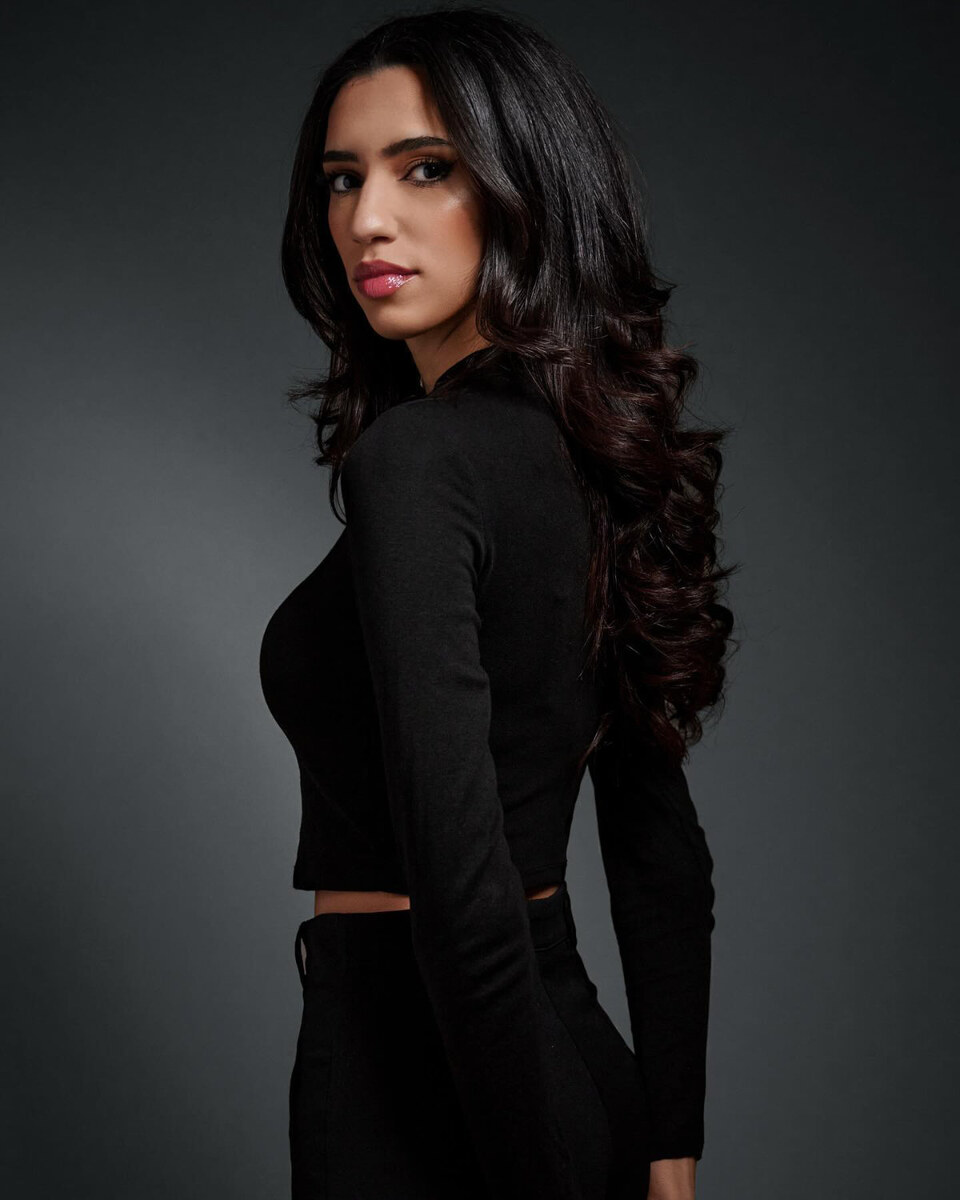
Saudi model and sustainable fashion advocate Reyouf Madkhali. (Supplied)
She also noted the growing interest in sustainable practices among younger generations.
“People are starting to ask questions and take ownership of their choices,” she said. “Supporting local brands is a passion of mine, and I’ve been gradually replacing pieces in my wardrobe with designs from Saudi designers.”
Saudi Arabia is proving that sustainability and cultural preservation can go hand in hand. By tackling the environmental impact of fast fashion and promoting innovative solutions, the Kingdom is forging a new path.



